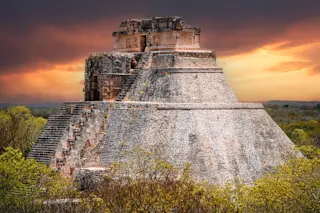Play along with me for a minute. Let's say this economist from the London School of Economics is right when he asserts:
The American Clean Energy and Security (ACES) Act of 2009 is worse than nothing: it is a con and a fraud. It pretends to be a vehicle for reductions in CO2E emissions. In fact it is designed to permit increases in CO2E emissions.
And that Roger Pielke Jr. is right when he shows here
how offsets under the bill will allow emissions to rise essentially indefinitely.
Or that at the very least, as A Siegel contends, the bill
falls far short of what is necessary and, well, quite likely falls short of what is possible.
Let's assume, for the sake of argument, the worst outcome as envisioned by the above critics, particularly the first two. (Climate change advocates like playing that "worst scenario" game, so why not?) If ...













